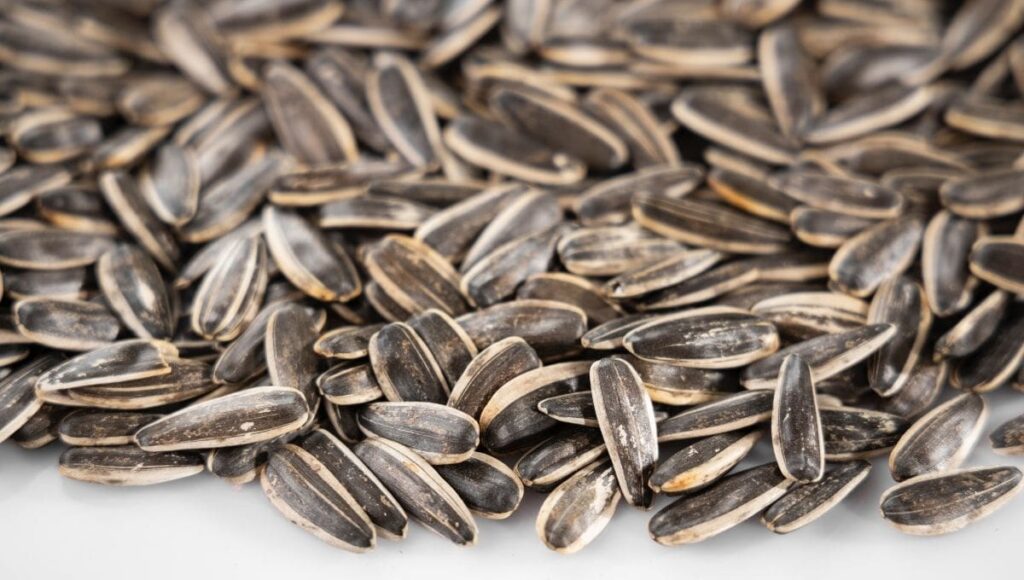Welcome to your guide about vitamin E. You will learn everything you need to know about this important micronutrient, which foods contain it, how much should you have every day, and what happens to your body if you lack this vitamin.
What is Vitamin E?
Vitamin E is part of a group of fat-soluble compounds. This micronutrient cannot be produced by the body and must be obtained either by consuming the right food or through ingesting supplements.
This vitamin acts mainly as an antioxidant by protecting cells from “free radicals,” unstable atoms that can damage cells causing varied illness and ageing. It also has the ability to reduce the production of free radicals.
According to UK’s National Health Service, vitamin E helps “maintain healthy skin and eyes, strengthen the body’s natural defence against illness and infection (the immune system).”
Related: Important Minerals and Vitamins You Need as an Athlete
How Much Do You Need?
Recommendations for the daily intake of vitamin E can vary according to your age. Check out the recommended dietary allowance (RDA) to meet the nutrient needs of a healthy person.
- Infants (0-12 months) – 4-5 mg/day
- Children (1-8 years) – 6-7 mg/day
- Children (9-13 years) – 11 mg/day
- Teens and adults (14+) – 15mg/day
- Breastfeeding women – 19 mg/day
For most of your life, a daily intake of 15 mg per day is enough to keep a healthy balance of this micronutrient.
Any vitamin E your body does not need is immediately stored for future use, so you do not need to add this micronutrient into your diet every day.
Food Sources
Good food sources to find this micronutrient are plant oils, nuts, seeds, wheatgerm, and some fruits and green leafy vegetables.
1. Wheat Germ Oil
One tablespoon contains 20 mg.
2. Sunflower Seeds

100 grams of sunflower seeds contain 35 mg.
3. Almonds
100 grams of almonds contain 26 mg.
4. Goose Meat
100 grams of goose meat has 1.7 mg.
5. Avocado
100 grams of avocado has 2.1 mg.
6. Hazelnut Oil
1 tablespoon of hazelnut oil contains 6.4 mg.
7. Sunflower Oil
1 tablespoon of sunflower oil has 5.6 mg.
8. Hazelnuts
100 grams of hazelnuts contain 15 mg.
9. Pine nuts
100 grams of pine nuts contain 9.3 mg.
10. Red Sweet Pepper (Paprika)
100 grams of paprika contain 1.6 mg.
11. Mango
100 grams of mango contain 0.9 mg.
12. Turnip Greens
100 grams of turnip greens (raw) contain 2.9 mg.
13. Broccoli (cooked)
100 grams of broccoli has 1.5 mg.
Do You Suffer from Vitamin E Deficiency?
It is difficult to have vitamin E deficiency from not having enough of the micronutrient in your daily diet.
According to a study published in 2000, most people that suffer from vitamin E deficiency have digestive disorders or do not absorb fat properly – pancreatitis, cystic fibrosis, celiac disease.
Vitamin E deficiency can cause:
- Neuromuscular problems – spinocerebellar ataxia and myopathies (muscle fibres do not function properly).
- Neurological problems – dysarthria, absence of deep tendon reflexes, proprioception (loss of the sense of self-movement and body position), and positive Babinski sign.
- Hemolytic anemia – a form of anaemia due to oxidative damage to red blood cells.
- Retinopathy – damage to the retina of the eyes.
- Impairment of the immune response
If you suffer from vitamin E deficiency, the best and fastest treatment is oral supplementation.
Pharmacies sell vitamin E supplements and those are usually high dosage. While a male adult needs 15 mg per day, a typical pill of vitamin E has around 10 times more than the daily recommended.
These supplement products often indicate the daily dosage in IU (International Units). The same male adult would need around 33 IU daily intake of Vitamin E, while most products sell a high dosage of 300-500 IU on each pill.
For safety reasons, a person must not ingest more than 1000 IU per day. Although more research is needed, excessive Vitamin E intake can cause haemorrhage and interrupt blood coagulation.
Read More: Supplements Guide – All You Need to Know
Image Sources
- sunflower seeds: engin akyurt / Unsplash
- red paprika: Vitolda Klein / Unsplash
- Vitamin E: Unsplash